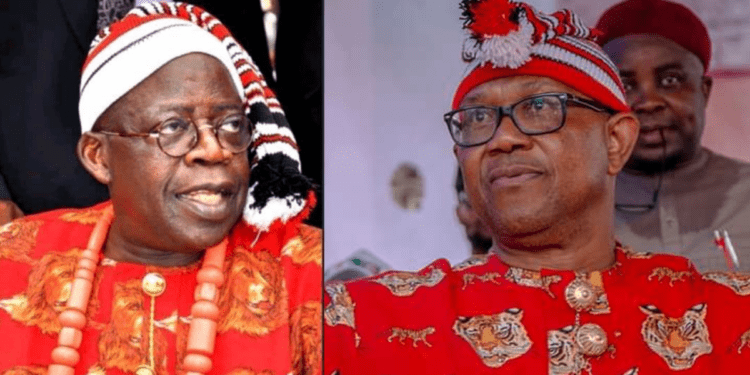Peter Obi has raised the alarm that President Bola Tinubu’s government is plunging Nigeria into its highest level of debt-to-GDP ratio in history, with little to show for the debt accumulation.
In a statement on Tuesday, Mr Obi said, “Today, over two years after the present government took over and with all the humongous borrowing, we are still confronted with negative reports of worsening poverty with about 133 million (63%) Nigerians classified as multi-dimensionally poor, increasing unemployment and disheartening news like 652 children dead as the malnutrition crisis worsens in Northern Nigeria.
“As our GDP before rebasing was about N269.2 trillion (about $180 billion), the government has borrowed the equivalent of nearly 70% of our previous GDP. Even after the rebasing, which pushed our GDP to about N372.8 trillion (about $243.7 billion), the government would have borrowed about 50.16 % of the new GDP (with the approved loans), the highest debt-to-GDP ratio in our history as a nation.”
The former Anambra governor added that while the year-on-year increase “is about N27.72 trillion and the quarter-on-quarter increase is about N4.72 trillion, we are accumulating very exponential levels of unsustainable debt with little or nothing to show for it in critical areas such as education, healthcare, electricity generation, security of lives and property, and pulling people out of poverty.”
Mr Obi pointed out that despite Mr Tinubu’s haphazard fiscal policies, Nigeria “still ranks low in all major human development indicators”.
“While education is underfunded and standard in continuous decline, healthcare remains inaccessible to millions of Nigerians, particularly the poor. Security of lives and property has deteriorated with over 10,217 people killed and 672 villages sacked between May 29th, 2023, and May 29th, 2025, even when security spending has significantly increased from N2.98 trillion in 2023 to N4.91 trillion in 2025.
“Infrastructure decay persists across the country, with about 135,000km of our 195,000km of roads remaining unpaved, largely unmotorable, and unusable. It is the same depressing situation in almost all sectors of the economy, with the power sector an unquestionable example, with less than 5,000 MW supplied for over 200 million Nigerians,” Mr Obi stated.
The politician worried that Nigeria’s debt profile could reach N200 trillion by the end of the year, considering that on July 22, the Senate approved an additional $21 billion, €2.2 billion, ¥15 billion of external borrowing for the 2025–2026 fiscal cycle, and N750.98 billion domestic bond issuance and a €65 million grant.
“With an already existing public debt of about N149.39 trillion as at the first quarter of 2025, adding the approved loans of about N37.2 trillion) brings our current total debt to about N187 trillion, with concerns that our debt might likely be over N200 trillion by the end of 2025.”






